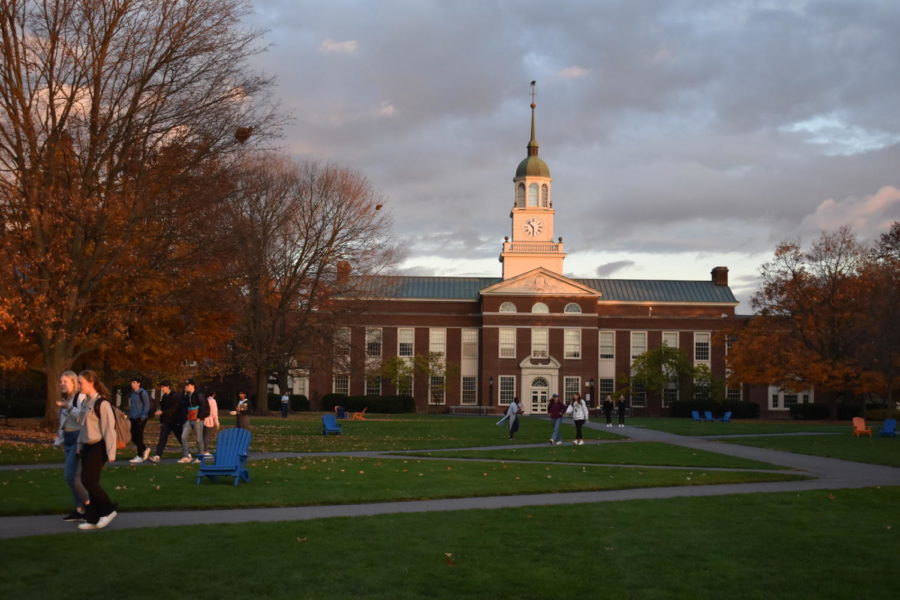Some faculty members want pay raises, argue low salaries could harm students’ education
May 10, 2023
Some faculty members believe that a shortfall in pay raises could hurt the quality of education on campus, and cause financial hardship among their colleagues.
Bucknell recently announced that there would be a 5.25% campuswide compensation increase, but some professors argue the university should do more to help them with the rise of inflation.
The new raise announcement hasn’t settled faculty demands for higher salaries. Real pay for faculty members is roughly 11% behind what it was in 2019, based on calculations from a professor in the Economics Department, which means their wages have decreased in value when adjusted for the inflation rate.
Bucknell’s administrators told The Buckellian they are doing all that they can to improve compensation, but faculty members’ requests would be too big of a stretch.
Faculty Frustrations
Steven Jordan, a 20-year-member of the Biology Department, said his colleagues feel “a lot of dismay” and “confusion” over the amount of their raise, and worries that this will directly affect not just the raises, but many necessities Bucknell offers to its students.
“The argument that the pandemic is responsible for that may carry weight at other institutions, but not at Bucknell,” Jordan said.
Enrollment rates have increased at a record rate since the start of the Covid-19 pandemic and Jordan said he worries that tuition of these new students is going towards the endowment, instead of going towards improving students’ education at Bucknell.
Other professors shared his concerns, and think a change needs to be made by Bravman’s administration. Last year, faculty passed a motion to demand salaries that don’t cut their real pay, meaning faculty would receive a yearly raise based on the inflation rate, the change in the consumer price index.
Sue Ellen Henry, professor of the Education Department, said if the raises don’t come, it could “erode the kind of experience students get here” by causing faculty to cut back on the “additional things” that are included in their contract — writing letters of recommendation, mentoring student research and hosting extra office hours.
Another professor in the English Department, Amy Golightly, said many of her colleagues are frustrated that Bucknell has hired outside contractors to evaluate faculty pay, rather than the university listening to its employees.
“There’s a real denigration, really pragmatically, of the expertise that’s on this campus and there’s a lot of it,” Golightly said.
Jordan said an example of how the administration undervalues professors is their pay for summer research.
Professors get paid roughly $500 per student that they mentor in the summer, but these faculty members often end up working 40 hours per week over the course of ten weeks. Also, professors that mentor student research in the fall, run independent studies and mentor honors theses for students are not paid additionally for the extra time.
“It wasn’t always like this at Bucknell. Many of us used to feel like Bucknell had our best interests in mind,” Jordan said. “And frankly, when an institution is taking care of its employees, it is better able to accomplish its core mission. When employees feel hurt, ignored, and disrespected, it makes it much harder for the institution to achieve its lofty goals.”
Administration vs. Faculty
To raise faculty salaries, the Board of Trustees needs to approve the expansion of the total compensation pool. This increase would be made after a recommendation from the Planning and Budget Committee, which falls under Bravman’s oversight and includes members of the administration, faculty and staff.
Psychology Professor J.T. Ptacek, chair of the Planning and Budget committee, released his recommendations for pay raises in January, asking for a 6.5 percent increase. He said Bucknell would “…run a real risk of further damaging staff and faculty morale…” if the increase didn’t happen.
Ptacek told The Bucknellian he believes the institution’s finances are “in very, very good shape,” and the size of the endowment should allow the administration to accommodate for the increased salaries he asked for.
“Faculty want to feel as if they are being fairly compensated for what they do and that compensation is justified over inflation; that year over year, they are not falling behind in their compensation,” Ptacek said.
Because Bravman is the direct line between faculty and the Board of Trustees, Ptacek said the faculty may think the President is not fighting hard enough on their behalf.
“Inflation is a tough taskmaster, and it’s not just faculty, it’s our employee base and employees everywhere,” Bravman said, to The Bucknellian. The “compounding” of no raises during the pandemic and a hiring freeze made the situation on campus “more potent.”
He said high inflation and these demands for pay raises are also coming during a time where Bucknell has become “much more aggressive” with boosting financial aid for students, which had consumed a “significant amount” of the school’s budget.
Faculty pay raises linked to inflation would mean a 10 percent increase in the total cost of attendance at Bucknell, according to Bravman, something the Board would not approve. He also said the Board would reject a one-time 11 percent pay increase to catch up with current inflation.
“They would say it would absolutely damage the university and our financial aid budget would be catastrophically impacted,” Bravman said.






















